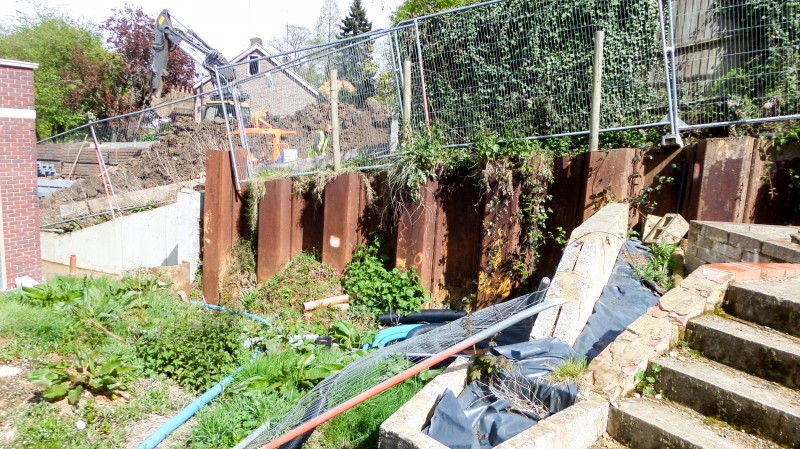You are here: What are Environmental Searches and why are they important?
Find out whether the property you are buying is built on or near contaminated land or water, or an old landfill site.
Are they mandatory?
Yes, unless you are buying without a mortgage. When you are buying with a mortgage, the conveyancing solicitor has to follow a set of standard instructions defined in The UK Finance Mortgage Lender’s Handbook.
The handbook comes in two parts, the first part applies to all UK Finance members –members of the organisation represent 97% of lending in the UK.
Part 2 contains a section for each member, detailing their requirements. This is where your conveyancer will find the list of which searches are required by your particular lender. In most cases the minimum required will be:
- Land registry searches - both Register and Title Plan)
- Local search - either Regulated or Council (both LLC1 and CON29)
- Water and Drainage - Regulated or CON29DW
- Environmental
Some lenders insist on an environmental search, especially if the property is in an area where it’s known that industry has existed. This is important because if it were, there is a risk that it could be contaminated. And contamination clear up is expensive. Ever seen old petrol pump stations shut and boarded up for months if not years before anything is built on them? This is why!
Even if you’re not buying with a mortgage, it’s vital to understand the history of the piece of land you are buying. You do not want to get saddled with a financially crippling clean-up bill or a property that you’re unable to sell on.

When are they ordered?
These searches are in the list of searches that should be ordered as soon as you appoint your conveyancing solicitor: as a minimum this includes Land Registry and Local Searches, Water and Drainage Searches, an Environmental Search, a Flood Risk Report and any specifically required searches based on geography, such as Radon Gas, Mining or China Clay searches.
One of the first things your conveyancer will do is ask you for money ‘on account’ in order to pay for these searches.
What do they tell you?
Many properties in the UK are built on land which was previously used for industrial purposes and toxic substances could still be in the ground. This search will tell you whether the property you are hoping to buy is one of these properties.
It’s important to find this out as early as possible, otherwise you could find yourself with a home that is impossible to sell later, or even worse is a health hazard.
Depending which product your solicitor uses, an environmental search will give you varying levels of information. It will usually cover contaminated land at or around the property, waste or landfill sites, former and current industry, flooding predictions, radon gas hazard and ground stability issues, such as landslide or subsidence risk levels.
None of these things are revealed if you just have the local authority search.
Are there different types?
Yes, environmental searches vary from one search provider to another, your solicitor will buy them on your behalf from either:
- A general search provider
- Direct from an environmental search specialist
- A water company (as referred to in our article on Water and Drainage Searches).
The main providers through these channels are Landmark, Groundsure or Future Climate Info.
What do they cost?
Costs vary depending on the provider and the product that your solicitor uses but £50 is the minimum that you should expect to pay.
This really is a case of you-get-what-you-pay-for and many solicitors will recommend that you get a more detailed search that includes a bit more such as the proximity of:
- pylons and electricity transmission lines
- planning applications on surrounding houses
- existing or potential mobile masts
- flood plains
These more detailed searches can also include other information relating to farming, entertainment, sports and fitness, animal welfare, hotels, eating and drinking, attractions, historical and cultural, retail, vehicle services, cash machines, nightclubs, emergency services, playground and picnic areas, transport, prisons, utilities, public facilities, hospitals, watercourse features and recycling services.
They also include an interpretation of the results; the more basic results just present the information and leave you to interpret it.
So, if any of the above is important to you, it is worth paying a little bit extra, ask your solicitor for more details.
How long do they last?
When acting on a conveyance, your solicitor has to follow The UK Finance Mortgage Lender’s Handbook, it says that searches must be no more than 6 months old on completion.
If you are thinking of buying or selling your home, you may find some of these services useful:
Conveyancing
Get instant estimates from Conveyancers and Solicitors in your local area
Mortgage Brokers
I need help getting a mortgage
Estate Agent
Find a local Estate Agent
Valuation Surveys
If you need a Valuation Survey
Building Surveys
I want a local surveyor to do a Building Survey for me
Removals
I want to find a removal company
Energy Performance Certificate
Energy Performance Certificates